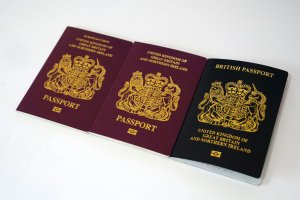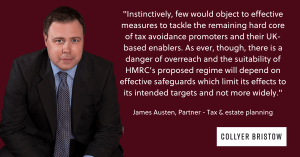- Immigration
- UK trusts, tax and estate planning

Longer Reads
Destination UK: Tax tips & relocation advice
Head of Immigration Charles Avens and Senior Associate Aidan Grant define the key UK visas routes for HNWs, entrepreneurs and business owners, and provide their top tips on pre-arrival tax and estate planning.
7 minute read
Published 26 October 2023
Key information
- Specialisms
- Private Wealth
UK pre-arrival tax and estate planning
Relocating to the UK exposes an individual to UK tax to varying degrees. How and when that tax arises depends on the date from when they are first treated as UK tax resident. This can be from the start of the UK tax year in which they arrive (6 April) even if they only arrive later in the tax year. UK tax residence is determined by a series of tests, and an individual can be UK tax resident for an entire tax year even though, for example, they were only physically present in the UK for say 90 days in that tax year. It is critical therefore that advice is sought on when that residency status might start, and any pre-arrival tax planning is completed in the UK tax year prior to their arrival.
For business owners relocating to the UK, it is crucial that they do not inadvertently import their foreign companies to the UK. To do so gives rise to UK corporation tax at up to 25% on the company’s worldwide profits. This can occur if a foreign company is ‘centrally managed and controlled’ from the UK. Avoiding central management and control from the UK is possible, but it can require care if the UK individual is one of only a few directors. If the individual is the sole director, then it may be that they need to retire in favour of a non-UK resident replacement. These rules can apply even if the individual spends time in the UK but not enough to trigger UK tax residence.
For the individual themselves, the remittance basis of taxation can be an effective tool to mitigating an individual’s exposure to UK tax on arriving in the UK. This permits the individual only to pay UK tax on their foreign income and gains if they ‘remit’ those funds to the UK. However, this can be significantly less effective for US citizens, who pay worldwide taxation already. In many circumstances the US taxpayer is better simply to accept UK taxation on their worldwide income and gains as they arise as well, and instead to claim a foreign tax credit (usually in the US) for the tax paid (usually in the UK). If foreign income and gains are only remitted in a later tax year, those tax credits may not be available, and the taxpayer could be exposed to double taxation. Advice should always be sought on the most tax-efficient basis on which to be taxed.
Wherever possible this pre-arrival period can be used to generate and maintain ‘clean capital’, which the individual can later bring into or use in the UK without incurring UK tax. The individual should also reflect on how they intend to fund their UK expenditure while UK resident. For example, will they draw a UK salary, will they draw funds from overseas sources like company dividends or trust distributions, or perhaps will they receive gifts from family members? Each of these sources generates different UK tax consequences in beneficial or adverse ways. This planning is most effective when completed in the UK tax year prior to the individual’s arrival. For certain clients they can live in the UK with a very light UK tax footprint. Conversely, the client who only decides to think about their sources of wealth after they have moved to the UK may find those funds subject to UK tax at significant rates, potentially without a credit for any tax already suffered at source in their home jurisdiction.
For more information, please contact Aidan Grant and/or visit our Trusts, Tax & Estate Planning page.
Coming to the UK
With the loss of the Investor Visa in February 2022, HNWs, Investors, Business owners and Entrepreneurs have been asking, on a frequent basis, how can one now, relocate to the UK? The answer lies in opening, expanding or working for a business in the UK, following one of the three routes set out below:
ROUTE 1: UK EXPANSION WORKER VISA
This new route replaced the old Sole Representative of an Overseas Company Visa in April 2022 and is for those overseas Business owners / HNWs, who are looking to relocate to the UK by opening a subsidiary of their overseas company in the UK.
This route can only be used if the overseas company has been trading for a minimum of 3 years but if it has then either the owner or a senior employee of the overseas company can start the process, by setting up a basic company footprint in the UK, by either registering a new UK subsidiary with Companies House or arranging business premises for the new UK company.
Once a basic company footprint has been established, the overseas company can then apply for a temporary sponsor licence for the new UK subsidiary, by producing a combination of documents to show the rationale for the expansion of the overseas company into the UK, such as (1.) Proof of UK footprint- registration with Companies House or evidence of UK business premises (2.) Evidence of overseas trading presence- company bank statements, Unaudited / audited Company accounts, evidence of contracts for goods or services (3.) Evidence of planned expansion into the UK- detailed business plan and supporting evidence (4.) further documents to support an application for business expansion.
Once the temporary licence has been granted (this normally takes up to 8 weeks), the company can then apply for up to a maximum of 5 Certificates of Sponsorship, so that senior employees of the overseas company may come to the UK (this can include the owner or the majority shareholder of the business) on Expansion Worker Visas to set up the UK subsidiary.
The UK Expansion Worker Visa is only a temporary visa for an initial 12-month period, which can then be extended for a further 12-month period (24 months in total) if required but this visa never leads to settlement in the UK.
The point of this temporary visa, is to allow either the owner or a senior employee(s) to establish the UK subsidiary company and then once certain criteria have been fulfilled, elevate the temporary sponsor licence to a full sponsor licence, allowing the person or people on Expansion Worker Visas to transfer on to Skilled Worker Visas that can lead to permanent residence in the UK after 5 years continuous residence.
One of the key criteria for elevating the sponsor licence to a full licence, is the need to employ someone in the UK subsidiary who holds at least permanent residence in the UK in order to operate the sponsor licence as a Level 1 user.
This Visa route is an excellent choice for those Business owners who are genuinely interested in expanding their already established overseas company into the UK.
ROUTE 2: INNOVATOR FOUNDER VISA
The new Innovator Founder Visa, which was unveiled in April 2023, is an amalgamation of the old Start Up Visa, which was designed for genuine start-up companies and the old Innovator Visa, which was designed for more seasoned international entrepreneurs.
This visa is designed to allow Entrepreneurs and Businessmen and women, who have an “innovative, viable and scalable” business proposal to open that business in the UK, as long as the individual can achieve endorsement from one of the three Home Office approved endorsing bodies.
The endorsing bodies are as follows: Innovator International, Envestors Limited, UK Endorsing Services and then lastly The Global Entrepreneurs Programme, which is not an endorsing body but rather a government programme run by the Department for Business and Trade for internationally mobile tech based entrepreneurs who have been invited to participate in the programme.
Unless one of the endorsing bodies approves and endorses the business plan of the new and innovative business that is being proposed, any application for an Innovator Founder Visa will be refused.
Unlike the old Innovator Visa, there is no longer a requirement for the Entrepreneur who chooses this visa route, to show that they have a minimum of £50,000 to invest into the company, at the start of the visa application.
There are though some very tough criteria that the Entrepreneur needs to have achieved over a 3-year period on this particular visa, in order to be able to apply for Indefinite Leave to Remain (ILR) at the end of year 3.
In order to be able to apply for accelerated ILR after 3 years, the business must remain endorsed by the endorsing body, the whole time the Entrepreneur is on the visa and the endorsing body must provide a letter of endorsement confirming the following:
(a) confirmation that the applicant has shown significant achievements, judged against the business plan assessed in their previous endorsement; and
(b) confirmation that the applicant’s business is registered with Companies House and the applicant is listed as a director or member of that business; and
(c) confirmation the business is active and trading; and
(d) confirmation that the business appears to be sustainable for at least the following 12 months, based on its assets and expected income, weighed against its current and planned expenses; and
(e) confirmation the applicant has demonstrated an active key role in the day-to-day management and development of the business; and
(f) confirmation the applicant’s business venture has met at least two of the following requirements:
(i) at least £50,000 has been invested into the business and actively spent furthering the business; or
(ii) the number of the business’s customers has at least doubled within the most recent 3 years and is currently higher than the mean number of customers for other UK businesses offering comparable main products or services; or
(iii) the business has engaged in significant research and development activity and has applied for intellectual property protection in the UK; or
(iv) the business has generated a minimum annual gross revenue of £1million in the last full year covered by its accounts; or
(v) the business is generating a minimum annual gross revenue of £500,000 in the last full year covered by its accounts, with at least £100,000 from exporting overseas; or
(vi) the business has created the equivalent of at least 10 full-time jobs for settled workers; or
(vii) the business has created the equivalent of at least 5 full-time jobs for settled workers, each of which has a mean salary of at least £25,000 a year (gross pay, excluding any allowances).
If the Entrepreneur is unable to achieve the above criteria then they can still apply to extend the visa for a further 3 years, as long as the endorsing body is prepared to continue endorsing them.
The visa can be extended multiple times if required, though a business’s consistent failure to achieve the above requirements, is likely to result in the endorsing body deciding to remove its endorsement.
ROUTE 3: SPONSORED ROUTE- SKILLED WORKER
The standard Skilled Worker Visa route is for a skilled individual to be employed by a UK company that holds a sponsor licence but if an overseas Business owner, HNW or Entrepreneur does not want to work for someone else’s UK company then there is a way for this route to assist them in bringing them over to the UK to work in a senior position inside their own newly established UK company.
Of all 3 routes, this route is the fastest route, as it does not require endorsement by an endorsing body or the need to transfer from a temporary visa or to elevate a sponsor licence but it does have a significant setback, which is a requirement by the overseas Business person, HNW or Entrepreneur to have some individual, already in the UK with at least permanent residence, who they know and trust, in order to set up their new UK company, as a senior employee and director and apply for a UK sponsor licence.
As the setting up of the UK company requires a significant degree of trust and experience (including the setting up of a UK corporate bank account) and the application for a UK sponsor licence comes with both civil and criminal liability, this option can only be used by those overseas Entrepreneurs and HNWs who have an experienced and trusted contact, resident in the UK.
If the overseas HNW, Business person or Entrepreneur does have such a person in the UK then the process is more straightforward, as there is the possibility that the overseas HNW, Business person can be employed on a Skilled Worker Visa in a senior position by their own newly set up UK company but without having such a person already in the UK, this route is not an option.
ADDITIONAL ROUTE- GLOBAL TALENT VISA
The Global Talent Visa route is only for applicants who are considered to possess exceptional talent or exceptional promise and are leaders or potential leaders in the following fields: science, medicine, engineering, humanities, combined arts, dance, literature, music, theatre or visual arts, architecture, fashion design, film and television (includes animation, post-production & visual effects) and digital technology.
The applicant must either be recognised internationally as a leading person in their field and has won an eligible award or has achieved endorsement from one of the government approved endorsing bodies, which are the British Academy, Royal Academy of Engineering, Royal Society, UK Research and Innovation (UKRI), Arts Council England (includes the Producers’ Alliance for Cinema and Television (PACT)) and Tech Nation.
This is a difficult visa to achieve but should an applicant do so then as long as they remain working in their chosen field of specialism, they do not require any sponsorship in the UK and can choose to be either self-employed or an employee or be a director of a company.
An applicant on a Global talent visa can apply to settle permanently in the UK (also known as ‘indefinite leave to remain’) after 3 years if applying as a leader in their particular field or 5 years if applying as a potential leader.
For more information, please contact Charles Avens and/or visit our Immigration Lawyers page or download our Destination UK brochure.
This article was first published by Professional Adviser on 25 October 2023.
Related content
Longer Reads
Destination UK: Tax tips & relocation advice
Head of Immigration Charles Avens and Senior Associate Aidan Grant define the key UK visas routes for HNWs, entrepreneurs and business owners, and provide their top tips on pre-arrival tax and estate planning.
Published 26 October 2023
Associated sectors / services
Authors
UK pre-arrival tax and estate planning
Relocating to the UK exposes an individual to UK tax to varying degrees. How and when that tax arises depends on the date from when they are first treated as UK tax resident. This can be from the start of the UK tax year in which they arrive (6 April) even if they only arrive later in the tax year. UK tax residence is determined by a series of tests, and an individual can be UK tax resident for an entire tax year even though, for example, they were only physically present in the UK for say 90 days in that tax year. It is critical therefore that advice is sought on when that residency status might start, and any pre-arrival tax planning is completed in the UK tax year prior to their arrival.
For business owners relocating to the UK, it is crucial that they do not inadvertently import their foreign companies to the UK. To do so gives rise to UK corporation tax at up to 25% on the company’s worldwide profits. This can occur if a foreign company is ‘centrally managed and controlled’ from the UK. Avoiding central management and control from the UK is possible, but it can require care if the UK individual is one of only a few directors. If the individual is the sole director, then it may be that they need to retire in favour of a non-UK resident replacement. These rules can apply even if the individual spends time in the UK but not enough to trigger UK tax residence.
For the individual themselves, the remittance basis of taxation can be an effective tool to mitigating an individual’s exposure to UK tax on arriving in the UK. This permits the individual only to pay UK tax on their foreign income and gains if they ‘remit’ those funds to the UK. However, this can be significantly less effective for US citizens, who pay worldwide taxation already. In many circumstances the US taxpayer is better simply to accept UK taxation on their worldwide income and gains as they arise as well, and instead to claim a foreign tax credit (usually in the US) for the tax paid (usually in the UK). If foreign income and gains are only remitted in a later tax year, those tax credits may not be available, and the taxpayer could be exposed to double taxation. Advice should always be sought on the most tax-efficient basis on which to be taxed.
Wherever possible this pre-arrival period can be used to generate and maintain ‘clean capital’, which the individual can later bring into or use in the UK without incurring UK tax. The individual should also reflect on how they intend to fund their UK expenditure while UK resident. For example, will they draw a UK salary, will they draw funds from overseas sources like company dividends or trust distributions, or perhaps will they receive gifts from family members? Each of these sources generates different UK tax consequences in beneficial or adverse ways. This planning is most effective when completed in the UK tax year prior to the individual’s arrival. For certain clients they can live in the UK with a very light UK tax footprint. Conversely, the client who only decides to think about their sources of wealth after they have moved to the UK may find those funds subject to UK tax at significant rates, potentially without a credit for any tax already suffered at source in their home jurisdiction.
For more information, please contact Aidan Grant and/or visit our Trusts, Tax & Estate Planning page.
Coming to the UK
With the loss of the Investor Visa in February 2022, HNWs, Investors, Business owners and Entrepreneurs have been asking, on a frequent basis, how can one now, relocate to the UK? The answer lies in opening, expanding or working for a business in the UK, following one of the three routes set out below:
ROUTE 1: UK EXPANSION WORKER VISA
This new route replaced the old Sole Representative of an Overseas Company Visa in April 2022 and is for those overseas Business owners / HNWs, who are looking to relocate to the UK by opening a subsidiary of their overseas company in the UK.
This route can only be used if the overseas company has been trading for a minimum of 3 years but if it has then either the owner or a senior employee of the overseas company can start the process, by setting up a basic company footprint in the UK, by either registering a new UK subsidiary with Companies House or arranging business premises for the new UK company.
Once a basic company footprint has been established, the overseas company can then apply for a temporary sponsor licence for the new UK subsidiary, by producing a combination of documents to show the rationale for the expansion of the overseas company into the UK, such as (1.) Proof of UK footprint- registration with Companies House or evidence of UK business premises (2.) Evidence of overseas trading presence- company bank statements, Unaudited / audited Company accounts, evidence of contracts for goods or services (3.) Evidence of planned expansion into the UK- detailed business plan and supporting evidence (4.) further documents to support an application for business expansion.
Once the temporary licence has been granted (this normally takes up to 8 weeks), the company can then apply for up to a maximum of 5 Certificates of Sponsorship, so that senior employees of the overseas company may come to the UK (this can include the owner or the majority shareholder of the business) on Expansion Worker Visas to set up the UK subsidiary.
The UK Expansion Worker Visa is only a temporary visa for an initial 12-month period, which can then be extended for a further 12-month period (24 months in total) if required but this visa never leads to settlement in the UK.
The point of this temporary visa, is to allow either the owner or a senior employee(s) to establish the UK subsidiary company and then once certain criteria have been fulfilled, elevate the temporary sponsor licence to a full sponsor licence, allowing the person or people on Expansion Worker Visas to transfer on to Skilled Worker Visas that can lead to permanent residence in the UK after 5 years continuous residence.
One of the key criteria for elevating the sponsor licence to a full licence, is the need to employ someone in the UK subsidiary who holds at least permanent residence in the UK in order to operate the sponsor licence as a Level 1 user.
This Visa route is an excellent choice for those Business owners who are genuinely interested in expanding their already established overseas company into the UK.
ROUTE 2: INNOVATOR FOUNDER VISA
The new Innovator Founder Visa, which was unveiled in April 2023, is an amalgamation of the old Start Up Visa, which was designed for genuine start-up companies and the old Innovator Visa, which was designed for more seasoned international entrepreneurs.
This visa is designed to allow Entrepreneurs and Businessmen and women, who have an “innovative, viable and scalable” business proposal to open that business in the UK, as long as the individual can achieve endorsement from one of the three Home Office approved endorsing bodies.
The endorsing bodies are as follows: Innovator International, Envestors Limited, UK Endorsing Services and then lastly The Global Entrepreneurs Programme, which is not an endorsing body but rather a government programme run by the Department for Business and Trade for internationally mobile tech based entrepreneurs who have been invited to participate in the programme.
Unless one of the endorsing bodies approves and endorses the business plan of the new and innovative business that is being proposed, any application for an Innovator Founder Visa will be refused.
Unlike the old Innovator Visa, there is no longer a requirement for the Entrepreneur who chooses this visa route, to show that they have a minimum of £50,000 to invest into the company, at the start of the visa application.
There are though some very tough criteria that the Entrepreneur needs to have achieved over a 3-year period on this particular visa, in order to be able to apply for Indefinite Leave to Remain (ILR) at the end of year 3.
In order to be able to apply for accelerated ILR after 3 years, the business must remain endorsed by the endorsing body, the whole time the Entrepreneur is on the visa and the endorsing body must provide a letter of endorsement confirming the following:
(a) confirmation that the applicant has shown significant achievements, judged against the business plan assessed in their previous endorsement; and
(b) confirmation that the applicant’s business is registered with Companies House and the applicant is listed as a director or member of that business; and
(c) confirmation the business is active and trading; and
(d) confirmation that the business appears to be sustainable for at least the following 12 months, based on its assets and expected income, weighed against its current and planned expenses; and
(e) confirmation the applicant has demonstrated an active key role in the day-to-day management and development of the business; and
(f) confirmation the applicant’s business venture has met at least two of the following requirements:
(i) at least £50,000 has been invested into the business and actively spent furthering the business; or
(ii) the number of the business’s customers has at least doubled within the most recent 3 years and is currently higher than the mean number of customers for other UK businesses offering comparable main products or services; or
(iii) the business has engaged in significant research and development activity and has applied for intellectual property protection in the UK; or
(iv) the business has generated a minimum annual gross revenue of £1million in the last full year covered by its accounts; or
(v) the business is generating a minimum annual gross revenue of £500,000 in the last full year covered by its accounts, with at least £100,000 from exporting overseas; or
(vi) the business has created the equivalent of at least 10 full-time jobs for settled workers; or
(vii) the business has created the equivalent of at least 5 full-time jobs for settled workers, each of which has a mean salary of at least £25,000 a year (gross pay, excluding any allowances).
If the Entrepreneur is unable to achieve the above criteria then they can still apply to extend the visa for a further 3 years, as long as the endorsing body is prepared to continue endorsing them.
The visa can be extended multiple times if required, though a business’s consistent failure to achieve the above requirements, is likely to result in the endorsing body deciding to remove its endorsement.
ROUTE 3: SPONSORED ROUTE- SKILLED WORKER
The standard Skilled Worker Visa route is for a skilled individual to be employed by a UK company that holds a sponsor licence but if an overseas Business owner, HNW or Entrepreneur does not want to work for someone else’s UK company then there is a way for this route to assist them in bringing them over to the UK to work in a senior position inside their own newly established UK company.
Of all 3 routes, this route is the fastest route, as it does not require endorsement by an endorsing body or the need to transfer from a temporary visa or to elevate a sponsor licence but it does have a significant setback, which is a requirement by the overseas Business person, HNW or Entrepreneur to have some individual, already in the UK with at least permanent residence, who they know and trust, in order to set up their new UK company, as a senior employee and director and apply for a UK sponsor licence.
As the setting up of the UK company requires a significant degree of trust and experience (including the setting up of a UK corporate bank account) and the application for a UK sponsor licence comes with both civil and criminal liability, this option can only be used by those overseas Entrepreneurs and HNWs who have an experienced and trusted contact, resident in the UK.
If the overseas HNW, Business person or Entrepreneur does have such a person in the UK then the process is more straightforward, as there is the possibility that the overseas HNW, Business person can be employed on a Skilled Worker Visa in a senior position by their own newly set up UK company but without having such a person already in the UK, this route is not an option.
ADDITIONAL ROUTE- GLOBAL TALENT VISA
The Global Talent Visa route is only for applicants who are considered to possess exceptional talent or exceptional promise and are leaders or potential leaders in the following fields: science, medicine, engineering, humanities, combined arts, dance, literature, music, theatre or visual arts, architecture, fashion design, film and television (includes animation, post-production & visual effects) and digital technology.
The applicant must either be recognised internationally as a leading person in their field and has won an eligible award or has achieved endorsement from one of the government approved endorsing bodies, which are the British Academy, Royal Academy of Engineering, Royal Society, UK Research and Innovation (UKRI), Arts Council England (includes the Producers’ Alliance for Cinema and Television (PACT)) and Tech Nation.
This is a difficult visa to achieve but should an applicant do so then as long as they remain working in their chosen field of specialism, they do not require any sponsorship in the UK and can choose to be either self-employed or an employee or be a director of a company.
An applicant on a Global talent visa can apply to settle permanently in the UK (also known as ‘indefinite leave to remain’) after 3 years if applying as a leader in their particular field or 5 years if applying as a potential leader.
For more information, please contact Charles Avens and/or visit our Immigration Lawyers page or download our Destination UK brochure.
This article was first published by Professional Adviser on 25 October 2023.
Associated sectors / services
- Immigration
- UK trusts, tax and estate planning
Authors
Need some more information? Make an enquiry below.
Subscribe
Please add your details and your areas of interest below
Article contributors
Charles
AvensPartner - Head of Immigration
Specialising in ImmigrationAidan
GrantPartner
Specialising in International trusts, tax & estate planning, Private wealth, UK trusts, tax & estate planning and US/UK Tax & estate planning
Enjoy reading our articles? why not subscribe to notifications so you’ll never miss one?
Subscribe to our articlesMessage us on WhatsApp (calling not available)
Please note that Collyer Bristow provides this service during office hours for general information and enquiries only and that no legal or other professional advice will be provided over the WhatsApp platform. Please also note that if you choose to use this platform your personal data is likely to be processed outside the UK and EEA, including in the US. Appropriate legal or other professional opinion should be taken before taking or omitting to take any action in respect of any specific problem. Collyer Bristow LLP accepts no liability for any loss or damage which may arise from reliance on information provided. All information will be deleted immediately upon completion of a conversation.
Close











































































